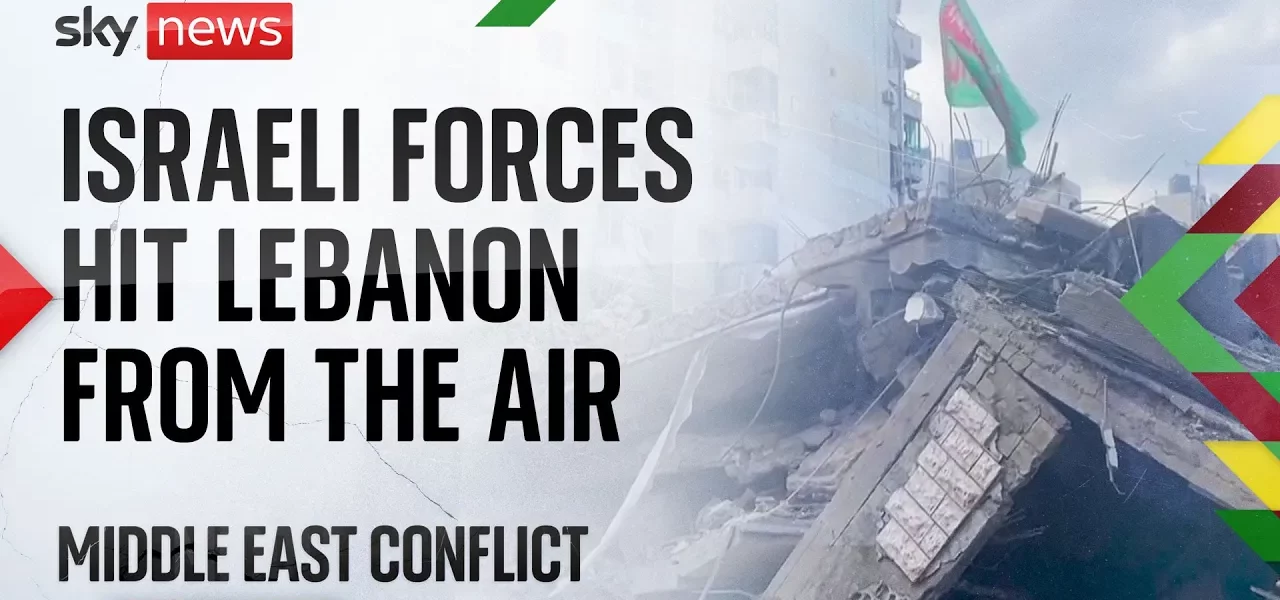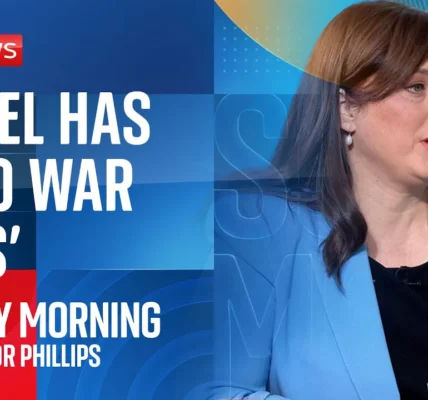Conflict in South Lebanon: The Impact of Israeli Airstrikes

The ongoing conflict in South Lebanon has escalated dramatically, with Israeli forces conducting extensive airstrikes targeting Hezbollah infrastructure. This article explores the devastating effects on local communities, the use of controversial weapons, and the humanitarian crisis unfolding as families mourn their losses.
Introduction
The recent surge in violence in South Lebanon has left a significant mark on the region, with Israeli airstrikes reported to be targeting Hezbollah tunnels and infrastructure. The humanitarian situation has rapidly deteriorated, with many civilians caught in the crossfire. This article provides a comprehensive overview of the impact of these airstrikes on the local population, the use of banned munitions, and the community’s response to the escalating conflict.
Escalation of Airstrikes
Recent military actions by Israeli forces have intensified, leading to widespread destruction in South Lebanon. The airstrikes have predominantly targeted Hezbollah positions, but the consequences are felt acutely among civilian populations.
Targeting of Hezbollah Infrastructure
Images released by the Israeli military depict relentless aerial bombardments aimed at Hezbollah tunnels and military infrastructure. However, these strikes have also impacted nearby residential areas, raising international concerns.
Humanitarian Crisis in Affected Areas
The southern city of T has transformed into a ghost town, with empty streets and shuttered businesses. Many residents have fled, while others remain indoors, fearful of the ongoing violence. The humanitarian implications are severe:
- Displacement of families
- Destruction of local businesses
- Increased civilian casualties
Use of Controversial Munitions
Reports have emerged suggesting the use of white phosphorus in Israeli airstrikes. This chemical agent is prohibited under international law for use in populated areas due to its severe effects on human health.
International Law and Humanitarian Concerns
The Lebanese government has vehemently criticized the use of such munitions, emphasizing the need for adherence to international laws designed to protect civilians during conflicts. The implications of using white phosphorus are grave and warrant global scrutiny.
Public Response and Criticism
Local residents and international observers alike have condemned these actions. Many argue that the use of banned substances exacerbates the humanitarian crisis and violates the principles of warfare established to safeguard civilian lives.
Community Impact and Resilience
Despite the overwhelming fear and loss, some residents of South Lebanon refuse to abandon their homes and livelihoods. Stories of resilience emerge from communities devastated by the conflict.
Personal Stories of Loss and Resistance
One poignant example is that of Ellas Barber, whose family business of building small boats has persisted through generations. Her determination to stay reflects a broader sentiment among locals:
- “Leaving here would be like ripping my heart out of my body,” she stated.
- “People are scared but won’t budge.”
Mass Mourning and Tragedy
The community in the village of Anel has been devastated by loss, with many mourning the deaths of friends and family members. This collective grief is palpable as they navigate the aftermath of the deadliest Israeli strike in nearly a year.
The Broader Implications of the Conflict
The ongoing conflict in South Lebanon has far-reaching implications, not only for the local population but also for regional stability and international relations.
Connections to the Gaza Conflict
Many residents draw parallels between their suffering and that of families in Gaza, expressing outrage at the perceived indifference of the international community. This comparison highlights the shared struggles of civilians in conflict zones across the region.
Calls for Peace and Sovereignty
Amidst the chaos, there are urgent calls from the community for peace and respect for their sovereignty. Locals emphasize their desire to live without the threat of violence:
- “It’s our land.”
- “We just want to live in peace.”
- “They should not attack any kilometer of our land.”
Conclusion
The conflict in South Lebanon represents a tragic chapter in the ongoing struggles faced by its residents. With airstrikes decimating communities and the use of banned munitions raising serious legal and ethical questions, it is clear that immediate action is needed to address the humanitarian crisis. As families mourn their losses and communities rally for peace, the international community must step up to support these efforts and work towards a lasting resolution. For those interested in learning more about the humanitarian impact of conflicts, consider reading our article on [Humanitarian Responses in Conflict Zones](#). Together, we can advocate for peace and justice for all affected by this devastating situation.
“`




